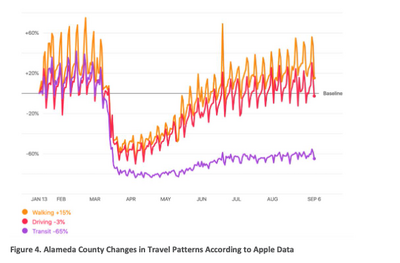November 23, 2020
 ITS Graduate Student Researcher Karl Reinhardt and Professor Emerita of City and Regional Planning and Urban Design Elizabeth Deakin recently published Best Practices for the Public Management of Electric Scooters.
ITS Graduate Student Researcher Karl Reinhardt and Professor Emerita of City and Regional Planning and Urban Design Elizabeth Deakin recently published Best Practices for the Public Management of Electric Scooters.Abstract: This research projects evaluates the social, environmental, and safety impacts of shared electric scooters (e-scooters)’ through a literature review, a nationwide scan of state and local laws and regulations, and a case study of Oakland’s experience with e-scooters, including an analysis of the city’s user survey and our own in-depth interviews. E-scooters offer an enjoyable, low-cost travel option, but are used mainly by young, affluent, white males. To improve equity, cities are requiring e-scooter rental companies to serve low-income and minority communities and some further mandate that a share of the e-scooters accommodate people with disabilities. E-scooters are quiet and produce no tailpipe emissions, but their cumulative environmental impact depends on their manufacture, useful life, disposal, and use. In early applications, rental e-scooters survived less than a year. Some 30-50 percent of e-scooter trips replace short auto trips. Cities and states can improve e-scooter safety by encouraging helmet use, offering rider training, limiting speeds, improving pavements, managing parking, and calming traffic.
